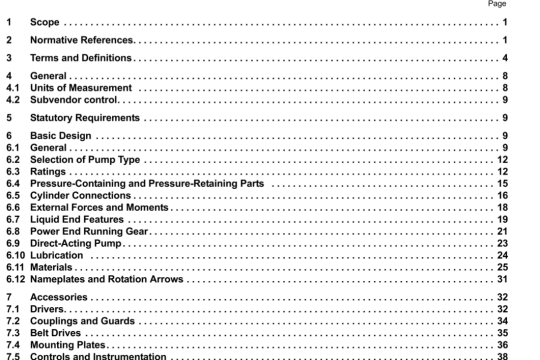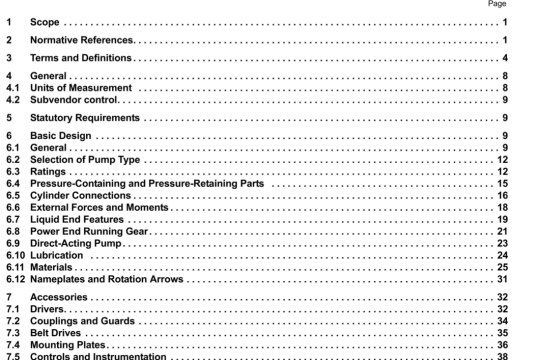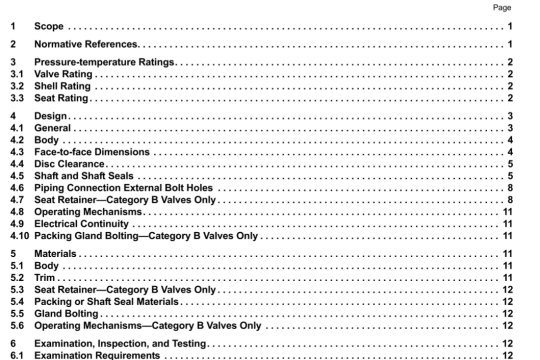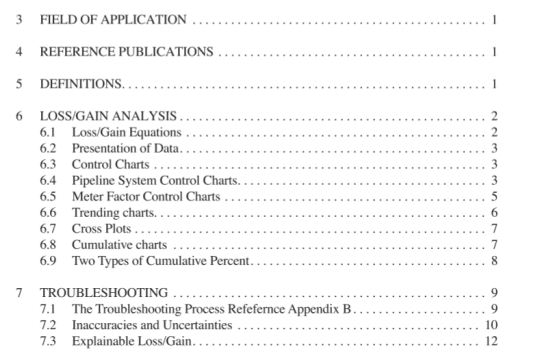API RP 74:2001(2013) pdf download
API RP 74:2001(2013) pdf download.Recommended Practice for Occupational Safety for Onshore Oiland Gas Production Operation.
4.3.4.2 For respiratory protection practices, including equipment selection, use, medical surveillance. lit testing. storage. inspection, maintenance, and training. see ANSI Z88.2- 1992, Respiratory Ps’vcectwn.
4.3.4.3 TIght-fitting air purifying respirators shall be used only in areas where sufficient oxygen exists.
4.3.4.4 Approved self-contained or supplied-air breathing equipment shall be used for those atmospheres where tests indicate toxic or hazardous gases are present in quantities immediately dangerous to life or health (IDLH) or oxygen content is less thaii necessary to sustain life. Air from the utility system shall not be used as the source for breathing air supply.
4.3.4.5 Cartridge type respirators shall not be used for prociiin from hydrogen sulfide or sulfur dioxide.
4.3.4.6 Personnel who may be expected to use breathing equipment shall be trained in the use and operation of breathing equipment available at the work site. Personnel shall be advised of the potential dangers of flammable, hazardous, and insufficient oxygen atmosphere. See API RP 55, Conducting Oil and Gus Producing and Gus Processing Plant Operaiion.s lnvolv:isg Hydrogen Sulfides.
4.4 FALL PROTECTION
4.4.1 All personnel, when engaged in work 6 H or higher above the ground or adjacent working surfaces, shall be protected at all times from falling by guardrail systems, safety net systems. or personal fall arrest systems (PFAS). When the employer can demonstrate that it is unfeasible or creates a greater hazard to use these systems. the employer shall develop and implement an alternative fall protection plan that provides for personnel safety. When I’FAS are used, the following shall apply:
a. Personnel shall use a full body harness manufactured in accordance with ANSI Z359. I
h. PFAS shall be inspected prior to each use.
c. The full body harness shall be attached by means of a lanyard with double-locking snap-hooks to an anchor or structural member capable of supporting a minimum dead weight of 5,400 pounds.
d. A separate lanyard shall be used by each person requinng a lanyard. The lanyard shall be adjusted to permit a maximum drop of 5 ft in case of a fall.
e. Manufacturer’s instructions for inspection and replacement of PFAS should be followed.
4.5 HOUSEKEEPING
4.5.1 Work arcas should be maintained clean and free of debris and tripping hazards.
4.5.2 Leaks or spills should he promptly cleaned up to eliminate personnel slipping and tire hazards.
4.5.3 If personnel are required to work in a cellar, it should be kept reasonably clear of water or oil accumulation. No loose equipment or materials should be in the cellar except those in use or about to be used.
4.5.4 Care should be taken to leave egress mutes open.
4.5.5 Tools and equipment should be securely placed and stored in a position or manner so they will not fall.
4.5.6 Clear access to control devices, emergency shutdown, emergency equipment. etc. shall be maintained.
4.6 MACHINERY AND TOOLS
4.6.1 Personnel shall only operate machinery that they are qualified to operate.
4.6.2 All belts, drive chains, gears. and drives shall have guards installed to prevent personnel from coming in contact with moving parts. See ANSI B 15.1, Safety Standard for Mechanical Power Transmission Apparatus. and API/ANSI 11 ER for construction specifications and clearances for such equipment guards.
4.6.3 Machinery shall not be operated unless all guards are in position and are in properly maintained condition. During maintenance or repair work limited testing may be perfomed by qualified personnel without guards in place.
4.6.4 Maintenance personnel should report to the supervisor prior to beginning repairs. They should report hazards that may be introduced. They should report when repairs are completed.
4.6.5 Personnel shall not clean, lubricate, or repair any machinery where there is a hazard of contact with moving parts until such machinery has been stopped or such parts have been properly guarded. See Lockoutfl’agout.
4.6.6 Hand power tools and similar equipment shall be maintained in a safi condition.
4.6.7 Electric hand tools shall he double insulated or grounded as specified in NFPA 70. Ground fault circuit interruption protechon shall be used in damp locations.




